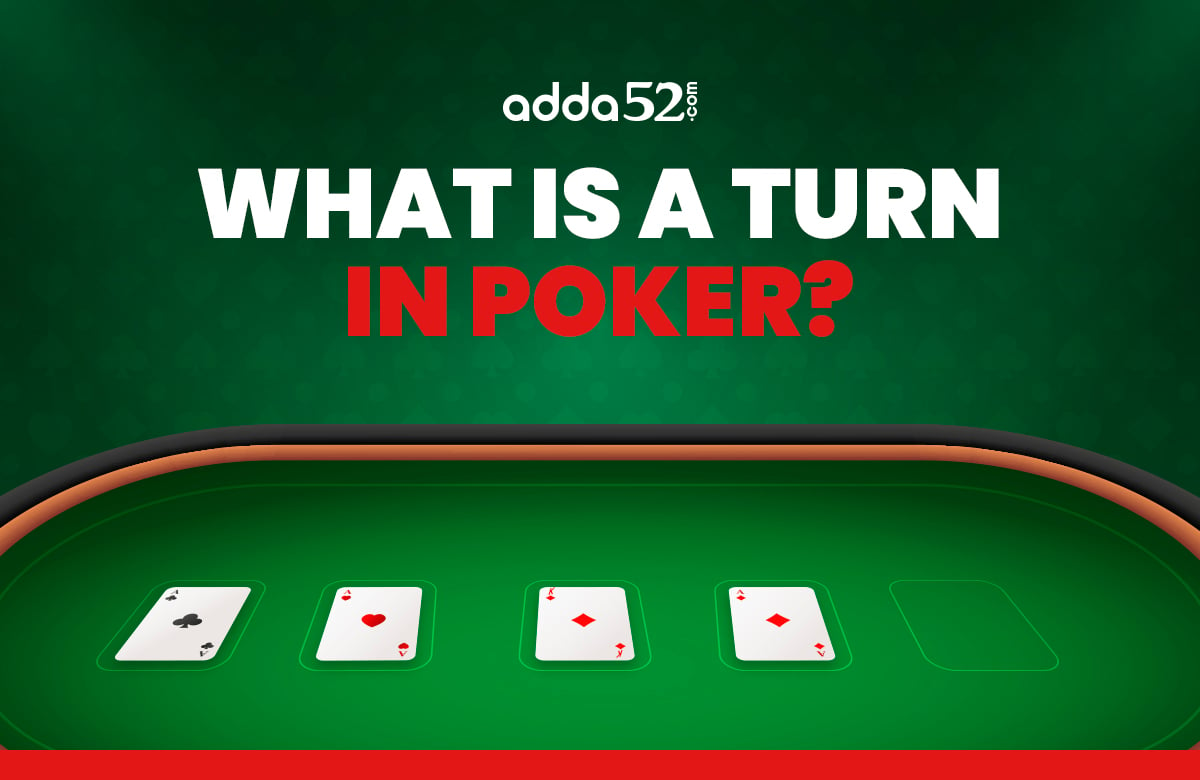
Introduction
In the world of poker, where the situation can be changed by every card and move made, the ‘turn’ is considered one of the most significant stages. It may seem like it is just a flip of another card but in reality, this moment could either secure your win or turn the odds against you. Understanding the importance of the turn is vital if you are an aspiring poker player who wants to up his level of play.
So, what actually is a turn and why does it matter so much?
What is Turn in Poker
Texas Hold’em and many other types of poker involve multiple betting rounds. The turn refers to the fourth communal card out of four, also known as ‘fourth street’. Once the initial pre-flop betting round has taken place followed by flop (first three community cards), the dealer puts down the fourth community card face up onto the table. This signifies starting off another stage within hand and precedes with further betting rounds.
Importance of the Turn Round
Expanding Possibilities
The turn significantly increases the potential combinations of hands players can have. On the flop, there are two community cards revealed while an additional one gets exposed during turn, thereby giving players more details to evaluate their hand’s strength and plan accordingly.
Changing Situation on the Table
The turn often alters the dynamics of the game. A strong hand on the flop might become weaker, or a marginal hand could improve significantly. This change in hand strength can lead to shifts in betting patterns and strategies among players.
Bluffing Opportunities
The turn presents ample opportunities for bluffing. Players can represent strong hands based on the community cards while concealing their actual holdings. Skilled players capitalize on this by making calculated bluffs to deceive their opponents and win pots.
Drawing Hands
For players holding drawing hands (hands that need additional cards to complete a winning combination, such as a flush or a straight), the turn is crucial. It offers them another chance to improve their hand or decide whether it is worth continuing to pursue their draw based on the current betting action and the likelihood of hitting their desired card on the river.
Pot Control
The turn often prompts players to reassess their hand's strength and their opponents' likely holdings. This evaluation can influence their betting decisions, leading to actions aimed at controlling the size of the pot. Players may choose to bet aggressively to build the pot if they believe they have the best hand or exercise caution to avoid investing more chips if they sense their opponents have stronger holdings.
Strategies for Playing the Turn
Hand Reading
Effective hand reading skills are crucial on the turn. You must pay attention to the community cards, your opponents' betting patterns, and any tells they may exhibit. You can use this information to narrow down the range of possible hands your opponents might have and make informed decisions accordingly.
Positional Advantage
As with other stages of the game, having position (acting later in the betting rounds) on the turn is advantageous. It allows you to gather more information from your opponents' actions before making your decision. Conversely, when out of position, you must exercise caution and consider the potential consequences of your actions carefully.
Board Texture
You must analyze the texture of the community cards on the turn and how they likely connect with your opponents' ranges. A coordinated board with possible straight or flush draws may necessitate different strategies than a dry, uncoordinated board. It is recommended to adjust your betting and bluffing frequencies accordingly.
Bet Sizing
You should choose your bet sizes wisely on the turn. A well-calibrated bet can extract value from your opponents' weaker hands or induce folds from hands that are drawing or behind in equity. You need to avoid making overly large or small bets that may indicate the strength or weakness of your hand.
Adaptability
You must remain flexible and adaptable in your approach to playing the turn. Also, you need to be prepared to adjust your strategy based on your opponents' tendencies and any new information that emerges.
Frequently Asked Questions
Q. What are the rules for betting rounds in poker?
A: In most variants of poker, including Texas Hold'em, betting rounds follow a specific structure:
Preflop: Players are dealt their hole cards, and the first round of betting occurs starting with the player to the left of the big blind. Players have the option to fold, call (match the current bet), raise (increase the bet), or check (if no bet has been made).
Flop: Three community cards are dealt face-up on the table. Another round of betting takes place, starting with the player to the left of the dealer button.
Turn: The fourth community card is dealt face-up on the table. Another round of betting occurs, following the same rules as the previous rounds.
River: The fifth and final community card is dealt face-up on the table. A final round of betting takes place.
Showdown: If there are remaining players after the final betting round, they reveal their hands, and the player with the best hand wins the pot.
Q. What is the turn in poker?
A: The turn is the third betting round in poker, specifically in games like Texas Hold'em. It occurs after the flop and before the river. During the turn, the dealer deals the fourth community card face-up on the table. As per Poker turn rules, players have another opportunity to bet, starting with the player to the left of the dealer button. The turn is a critical moment in the hand as it provides players with more information about their potential hand strength and alters the dynamics of the game.
Q: Can you bet out of turn in poker?
A: Betting away from your own turn, also known as ‘action out of turn’, is usually not allowed in poker. Participants must proceed when it is their time according to a certain order. The game is disrupted by betting out of turn and gives other players an unfair advantage on the outcome. If no subsequent action alters the situation, bets made this way are binding; nevertheless, the betting action may be adjusted to fit the proper order of play.
Q: How do turns work in poker?
A: Turns in poker refer to the fourth community card dealt face up on the table in games like Texas Hold'em and Omaha. After the initial round of betting (preflop) and the flop (the first three community cards), the dealer reveals the turn card. This card expands the possibilities for players' hands and influences the direction of the hand.
Conclusion
In conclusion, the turn is a pivotal stage in any game of poker. Mastering this phase requires a combination of strategy, understanding of mathematical concepts, and psychological insight. By honing your skills and understanding Poker turn rules, you can gain a significant edge over your opponents and elevate your poker game to new heights.
